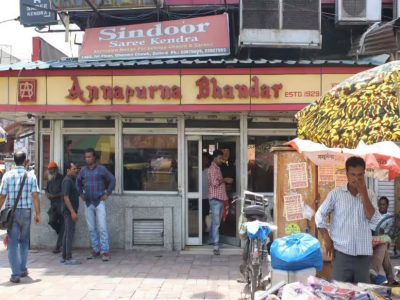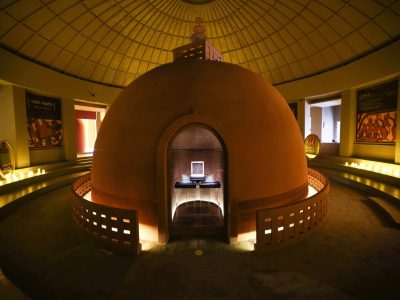Renowned chef Joel Basumatari, who was in Delhi recently to showcase the diverse and vibrant traditional cuisine of Nagaland, says that the aim of his visit was to promote cultural exchange.
“I came to Delhi to showcase Nagaland’s traditional cuisine, especially to those unaware of it. We were also here to celebrate the culinary diversity in Delhi. This will help in cultural exchange,” he says.
Chef Joel adds that he used traditional flavours and ingredients to tantalise the taste-buds of guests in Delhi.
“We tried our best to use the traditional ingredients. We wanted a traditional way of using bamboo in our cuisine but unfortunately, we could not find it in Delhi. Then we used the banana leaves.”
He says that the Delhi guests loved the chicken prepared by him.
“I made a traditional chicken named Kenie Thevu Gacha (cooked from perilla seed). It was cooked well and contained zero oil. When I told the guests that this chicken has no oil, they started loving it and it remained in high demand,” says Joel, who is recognised as one of India’s ‘Top 30 Food Superstars’ by culinary culture.
Asked if he has added local ingredients to Nagaland dishes, he says ‘no’.
“I didn’t add any spice to my dishes as I had to show the traditional cuisine of Nagaland. I don’t want to spoil the quality of my food and have to maintain the authenticity of Naga cuisine [which doesn’t use spice],” he says.
“An event management company wanted me to take up this project. Initially, I was reluctant since I was stuck up with my other assignments, but later I decided to go ahead as I would get a platform to showcase the traditional food of my place to another part of India,” he added.
Joel says that he would like to collaborate with Delhi-based chefs if he gets a chance in future.
“We didn’t collaborate this time but the team at the hotel have been very helpful and they treated me like I have been working here for a long time. I would love to collaborate and promote cross-culture cuisines because chefs in Delhi cook with their expertise and we would cook with our expertise so this would be a great experience and cross-culture exchange. New dishes would surely be created,” he says.
Chef Joel was also part of the Slow Food Nagaland & North-East Food Show — Chef Wars in 2019.
“Through Slow Food Nagaland which works for the preservation of biodiversity and heritage, we are helping local farmers build a market link to sell their produce and in fact, we use their produce as ingredient for our cuisines. They get to earn,” he says.
“The North-East Food Show — Chef Wars was held in 2019 in Shillong. It was a food competition where chefs from eight states of India participated and I earned the first position,” he says.
Chef Joel adds that Delhi chefs use a lot of spices in their food.
“The food served in Delhi is known to be very tasty, though I have not tasted it yet. The problem is that the chefs here use of a lot of spices. But we don’t use that many spices in our cuisine because our food tells a story, especially the way we cook it or offer it,” he says.
“Nagaland comprises 17 different tribes so it became very difficult to choose the traditional cuisine. But I brought 7-8 traditional cuisines for the menu this time,” he added.





